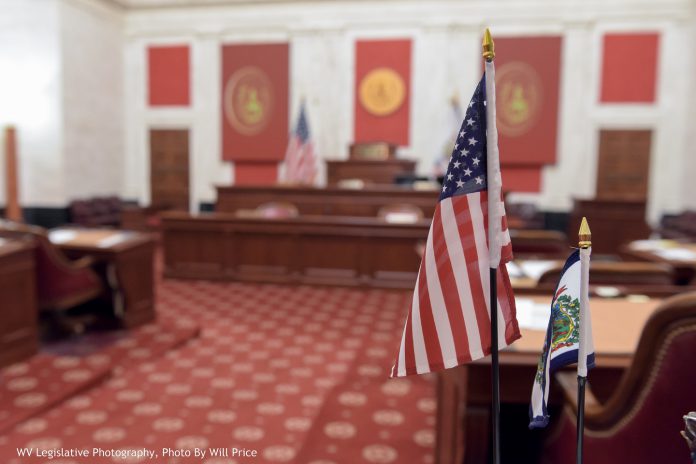As of 4 p.m. Wednesday, February 21, 2007, the 43rd day of the 2007 Regular Session, 745 bills have been introduced. Of those, 88 have been passed the Senate and will now go on to the House for its consideration. They include:
Senate Bill 68 would allow the Director of the Office of Miners’ Health, Safety and Training to take into account a coal mine’s failure to comply with previous warnings when deciding whether to issue an order to shut down the mine for reasons of there being an “imminent danger.” The bill also limits the use of “belt air” as mine ventilation and requires the inspection and review of mines that currently use it.
Senate Bill 76 relates to establishing underage drinking as an unlawful act rather than a status offense. Buying alcohol while underage would result in a misdemeanor and may result in a fine of $50 and possible jail time of 72 hours. Anyone who buys alcohol for a minor would be fined up to $100 and be jailed up to 10 days.
Senate Bill 116 would clarify state voyerism laws, and would exempt law-enforcement officers during a criminal investigation and lawful security surveillance.
Senate Bill 177 would create a new Division of Energy in the Department of Commerce. It would also require the Public Energy Authority to develop a five-year energy policy plan to be presented to the Governor and the Joint Committee on Government and Finance before December 1, 2007.
Senate Bill 204 would require magistrate court judges to assess the cost of juries (for the total of their embarkment, mileage, etc.) at their actual cost rather than current the flat rate of $200.
Senate Bill 219 would prohibit smoking in a motor vehicle when those under 14 years of age are present. This would only be a secondary offense, meaning someone could not be pulled over for the infraction, but found to have transgressed only after having been pulled over for another reason.
Senate Bill 387 This bill provides that an honorably discharged veteran may not be denied the opportunity to have a bronze military grave marker placed on his or her gravesite.
Senate Bill 395 would modify the definition of “intractable pain” (meaning difficult to manage) in the law so that it would come into accordance with the one recommended by the Federation of State Medical Boards. This definition change is already being used by the W. Va. Board of Medicine and the Board of Osteopathy in their policies pertaining to the use of controlled substances to manage pain.
Senate Bill 399 relates to the issuance of drivers’ licenses. Any driver’s license given up upon relocating to another state must be destroyed and the original state must be notified. For an instruction permit, the applicant must pay five dollars to take the written test and may re-take it up to two times. The organ donor option section would also be provided in this section. This bill also states that a level one instruction permit holder, 18 years of age and younger, may not use a wireless communication device while driving unless contacting a 911 system. Penalties range from a $25 first offense, to a $75 maximum fine.
Senate Bill 411 relates to the founding of the West Virginia Correctional Center Nursery Act. The center would allow imprisoned pregnant women to keep their infants with them in a special housing unit. In order to be eligible to participate in the program the inmate must be pregnant at the time she is delivered into the custody of the Division of Corrections, give birth on or after the date the program is implemented and she and the child must meet any other criteria established by the division.
Senate Bill 414 would raise the fees charged by circuit clerks for various services, such as garnishing a person’s salary and executing the seizure of one’s property to provide the payment of a legal judgment.
Senate Bill 489 relates to the duties of the Workforce Investment Council in the development of a strategic five-year state workforce investment plan that would attempt to establish a public agenda with goals of promoting the success of the state. This would attempt expressly, among other things, to find jobs for PROMISE scholars in West Virginia.
Senate Bill 530 would allow political parties to authorize a voter who is not a member of a political party (i.e. an independent), or not affiliated with any party appearing on the general election ballot to vote in the party’s primary election.
Senate Bill 603 relates to the 21st Century Schools Technology Initiative and would replace and enhance current technology used in the state’s classrooms. This bill would bring technology in public schools up to date with that which is now available across the country.

